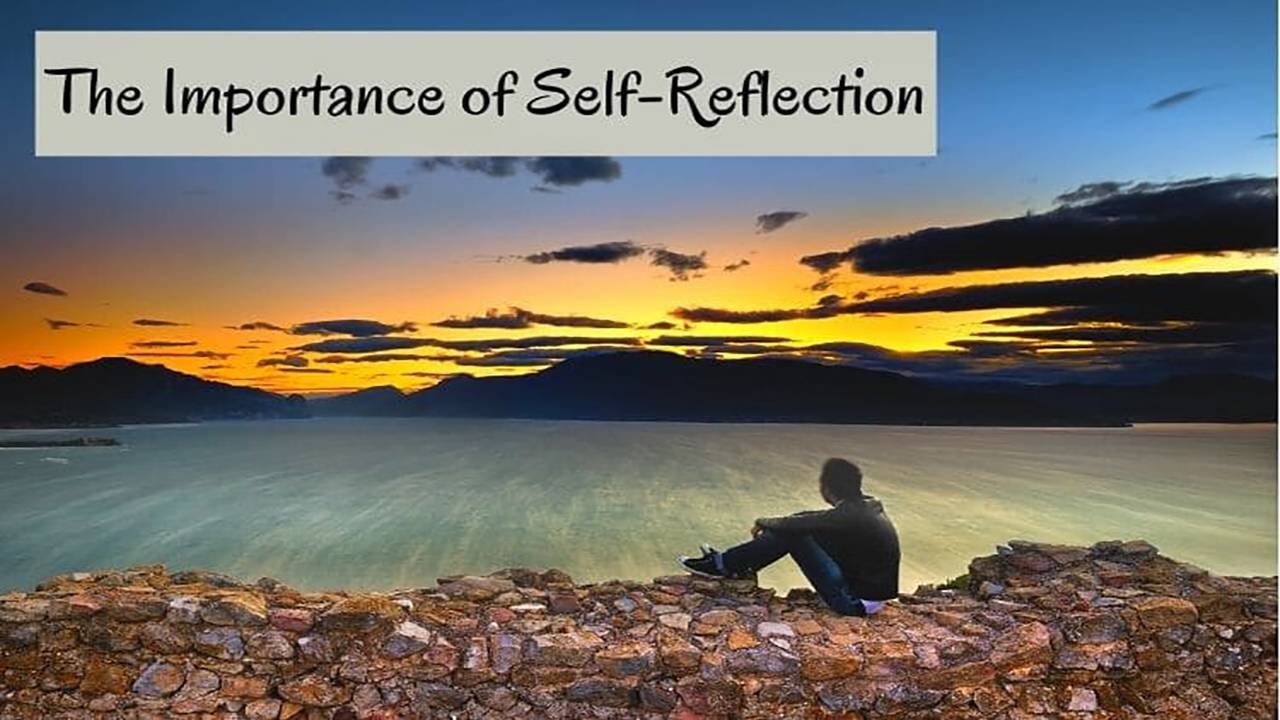The Importance of Self-Reflection for Personal Growth

Self-reflection is the practice of looking inward to gain insight and understanding of our thoughts, emotions, and behaviors. It involves taking a step back from our daily lives to evaluate our actions and decisions, and to consider how they align with our values and goals. While self-reflection may seem like a simple concept, it is a powerful tool for personal growth and development.
What is Self-Reflection?
It is the process of examining our own thoughts, emotions, and behaviors with the intention of gaining a deeper understanding of ourselves. It involves being honest with ourselves about our strengths and weaknesses and taking responsibility for our actions and decisions. Self-reflection can help us identify patterns in our behavior and thought processes and can help us make changes to improve our lives.
Self-reflection can take many forms, including journaling, meditation, mindfulness, and self-assessment. It can be done alone or with the guidance of a therapist or coach. The key is to create a space for ourselves to reflect on our lives and to engage in a meaningful dialogue with ourselves.
The Benefits of Self-Reflection
It has numerous benefits for personal growth and development. Here are some of the most important:
a. Increased Self-Awareness: It helps us develop a greater awareness of our thoughts, emotions, and behaviors. This increased awareness allows us to make more conscious choices about how we live our lives.
b. Improved Emotional Regulation: By reflecting on our emotions, we can develop better strategies for managing them. We can learn to identify our triggers and develop coping mechanisms to deal with difficult emotions.
c. Enhanced Problem-Solving Skills: Self-reflection can help us identify patterns in our behavior that may be holding us back from achieving our goals. By understanding these patterns, we can develop better problem-solving skills and make changes to improve our lives.
d. Better Relationships: Self-reflection can help us identify patterns in our relationships and develop better communication skills. We can learn to be more empathetic and understanding and to communicate more effectively with others.
e. Increased Creativity: Self-reflection can stimulate our creativity by helping us tap into our inner thoughts and feelings. We can develop new ideas and perspectives by reflecting on our experiences.
How to Practice Self-Reflection
There are many ways to practice self-reflection. Here are some techniques that you may find helpful:
a. Journaling: Writing down your thoughts and feelings can help you gain clarity and insight. Set aside a few minutes each day to write in a journal, and reflect on your experiences.
b. Meditation: Meditation can help you cultivate a sense of inner calm and focus. Set aside a few minutes each day to sit in quiet contemplation, and focus on your breath.
c. Mindfulness: Mindfulness involves paying attention to the present moment without judgment. Practice mindfulness by focusing on your breath, or by paying attention to your senses.
d. Self-Assessment: Take stock of your strengths and weaknesses, and consider how they impact your life. Identify areas where you would like to improve and develop a plan to make changes.
e. Seek Guidance: If you find self-reflection challenging, consider seeking the guidance of a therapist or coach. They can help you develop strategies for self-reflection and provide support and encouragement.
Overcoming Barriers to Self-Reflection
While It can be a powerful tool for personal growth, it can also be challenging. Here are some common barriers to self-reflection, and some strategies for overcoming them:
a. Fear of Judgment: Many people are afraid to reflect on their thoughts and emotions because they fear being judged by themselves or others. To overcome this fear, practice self-compassion and remind yourself that everyone has flaws and areas for growth.
b. Lack of Time: Busy schedules can make it difficult to find time for self-reflection. Try to set aside a few minutes each day for reflection, and consider incorporating self-reflection into your daily routine.
c. Resistance to Change: Some people may resist self-reflection because it requires them to confront uncomfortable truths about themselves. To overcome this resistance, remind yourself that change is a necessary part of personal growth and development.
d. Distractions: Modern life is full of distractions that can make it difficult to focus on self-reflection. To overcome distractions, create a quiet and comfortable space for reflection, and turn off your phone or other devices.
e. Lack of Clarity: Some people may struggle with self-reflection because they are not sure where to start. To overcome this, consider using guided prompts or working with a therapist or coach to help you get started.
Conclusion
Self-reflection is a powerful tool for personal growth and development. By looking inward and gaining insight into our thoughts, emotions, and behaviors, we can make positive changes in our lives and relationships. While self-reflection can be challenging, it is well worth the effort. By incorporating self-reflection into our daily lives, we can develop a deeper understanding of ourselves and live more meaningful and fulfilling lives.




